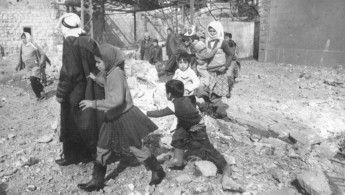Wikileaks: The politics of power and qat
Although many of the cables were unclassified before their release, by glancing through the cables we can glean some anecdotes, and a look into events that foresee the contemporary quagmire in the Middle East.
The assassination of a Yemeni President, qat and Saleh
In June 1978, Ahmed al-Ghashmi, president of the Yemen Arab Republic - or North Yemen - was assassinated by a bomb in a briefcase.
The cables say that in the months before his assassination, he had been in close and extensive contact with Salim Rubayi Ali - president of the then soviet-affiliated South Yemen.
| Saleh...told his charge that his duty was "security in the Yemen Arab Republic and revenge against the South". |
However, after discovering that the qat actually contained a lot of money, the cables speculate that the two leaders were plotting against Abdul Fattah Ismail - the secretary general of the Yemeni Socialist Party, and therefore de facto leader in the South - to secure their respective political ends.
The cables speculate on the possibility that Ismail found out about the scheming, and therefore "turned on al-Ghashmi with the bomb".
(In July 1978, Salim was ousted in a coup lead by Ali Nasir Mohammed, who would later also kill Ismail in the South Yemen conflict. Earlier this year he was being considered a prospective interim leader of a presidential council.)
Ultimately, whoever was responsible for Ghashmi's assassination, the South and the USSR were blamed, further stirring up tensions between the two Yemens. Ghashmi was eventually succeeded that year by Ali Abdallah Saleh, who would rule Yemen for the next 33 years, until the Yemeni uprising in 2011.
Saleh, described by Americans as "young, ambitious, ruthless and inexperienced", apparently told his charge that his duty was "security in the Yemen Arab Republic and revenge against the South".
Saleh's unfortunate predecessors - al-Ghashmi and Ibrahim al-Hamdi (also assassinated) - had their authority challenged by both tribes and leftists who had support from the South.
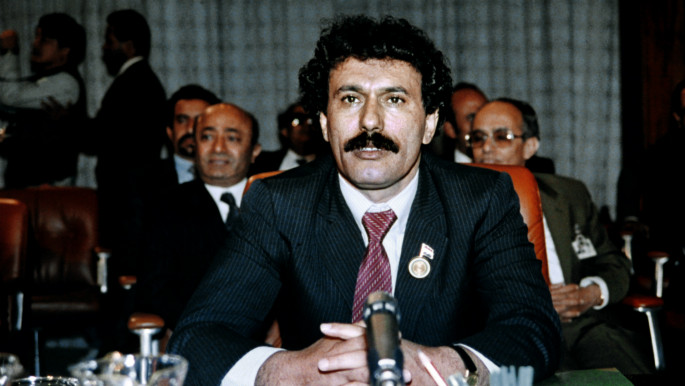 |
||
| 1978 saw the rise of Seleh who would rule Yemen for 33 years [AFP] |
Saleh, however, quickly sought US backing and weaponry purportedly to combat soviet influence in neighbouring Yemen, with the cables documenting his plea to the US for training in guerrilla warfare and weapons, urging the Americans to keep his request "a secret".
Somewhat shadowing developments in Afghanistan, where, in 1978 the US started arming the mujahadeen to oppose a Soviet-friendly government, the Soviet influence in South Yemen was eventually replaced by some radical Islamist elements, including al-Qaeda.
Saleh recently made alliances and is backing Zaydi tribesmen in the north, many who now make up the "houthi" rebels and are embroiled in a civil conflict with much of South Yemen.
Revolution in Iran: "Welcome to the club"
1978 saw the beginning of mass demonstrations in Iran that eventually lead to the ousting of the monarchy of Reza Shah Pahlavi.
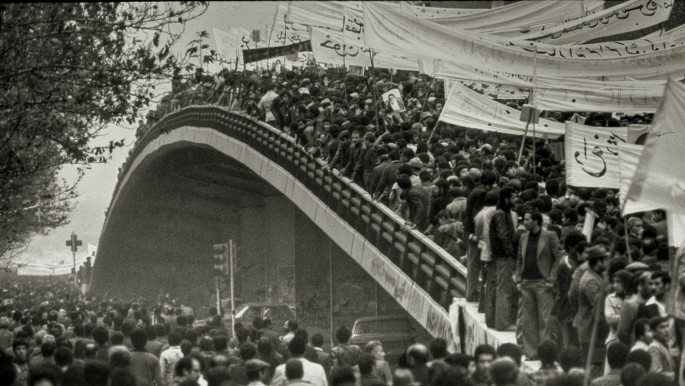 |
||
| Protests against the Shah, who had been a long-standing ally of the US in the region [Getty] |
One of the cables from March 1978 documents a meeting between the shah and the Americans on the "human rights situation in Iran" as the demonstrations progressed. The shah told the US he had freed some political prisoners but was having "some problems" with several detainees who were serving long sentences and had gone on strike.
"The prisoners describe their condition as 'mental torture' and have gone on hunger strike... The Shah really didn't know how to handle this new turn of events," the cable said.
The US replied "welcome to the club", saying that Western governments have had to deal with similar difficulties with these "shrewd tactics" by prisoners, but that "due process is still important".
Although the cables read of cautious optimism by the Americans that the demonstrations were contained, the US also brushed off the Shah's theories that the success of the protests could be explained by soviet involvement, with the US speculating that incompetent handling by officials was a more likely explanation.
Ultimately, the US's advice on human rights to the shah failed to halt the demonstrations that led to the administration of Ayatollah Khomeini and the founding of the Islamic Republic of Iran.
The Lebanon conflict, militias and Assad
In March 1978, Israel invaded South Lebanon which at the time was being used as a base by the Palestinian Liberation Organisation to launch attacks against Israel, in what it called 'Operation Litani'.
| In dealing with both the Palestinians and the Lebanese, Assad's preferred tact is to play a waiting came and try to outlast his opponents. - Diplomatic cable, 1978 |
The cables document the US annoyance at Israel for attacking a Palestinian convoy on the day the ceasefire was declared by the UN, which killed Palestinian civilians. "This action has put us in a difficult situation," the cables said.
The cables also document Israel's provision of US-made weapon to Lebanese Christian militias, to which the US's response was less restrained.
A US diplomat told Israeli defence minister, Ezer Weizman, who would later become president that he "found his behaviour puzzling and disturbing", and that he did not "appreciate dealing with anyone in this fashion, least of all a senior member of the Israeli government who I considered a friend."
The cables describe Christian Lebanese militia leader Saad Haddad as being under direct orders from Israel, at one point rejecting UN deployment plans after a private talk with an Israeli army colonel.
Hafez al-Assad, father of current Syrian President Bashar al-Assad, treated the situation with characteristic pragmatism, sitting on the fence and maintaining a relationship with both the PLO and Lebanese right wing forces.
"In dealing with both the Palestinians and the Lebanese, Assad's preferred tactic is to play a waiting came and try to outlast his opponents," a cable from 20 March read.
The cables further demonstrate that Syrian involvement in Lebanon was largely accepted by Israel, due to Syria's attempt to curb the power of the PLO.
Upon hearing that Syrian troops were delivering supplies to the Lebanese army in South Lebanon, Weizman said: "I'm glad we didn't bomb them".
"The Israelis no doubt are intrigued by a situation that would pit the Syrians against the Palestinians in South Lebanon," one cable read.
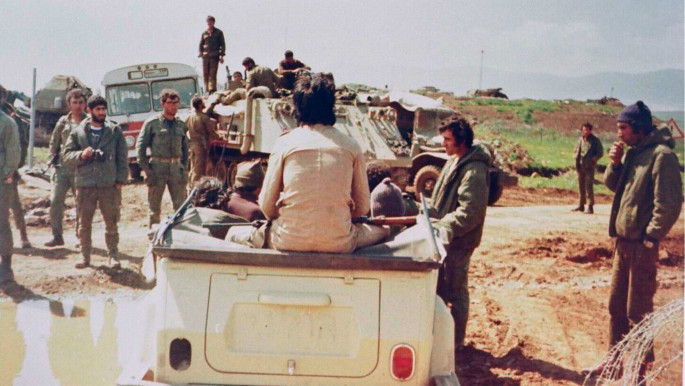 |
||
| Militia leader Saad Hadaad with Israeli forces during operation Livani [creative commons] |
Syria's "waiting game" in this conflict foresees the destruction of Tel al-Zaatar Palestinian refugee camp during the Lebanese civil war that was carried out by Christian militias with Assad's backing.
Although Israel's relations with Christian Lebanese militias are well known - infamously their collaboration lead in the massacre of 800 Palestinians in Shatila refugee camp - the cables also refer to Weizman's talk of training 1,400 Shia militias in the South to combat Palestinians.
As the PLO retreated further into North Lebanon, Weizman relayed "gleefully" to the Americans that a Lebanese army officer had asked the Israelis why they did not go further into Lebanon and "clear up the entire situation".
The attack resulted in the deaths of about 1,100 to 2,000 Palestinians and Lebanese, which saw the beginnings of the Israel-Lebanon conflict. It also set in motions the Lebanese civil war four years later, which reshaped the Lebanese political system.
Camp David Accords and information wars
September 1978 saw the signing of the Camp David Accords between Egypt under President Anwar Sadat, and Israel. This marked a significant turning point in Egyptian-Israeli relations which continues until today.
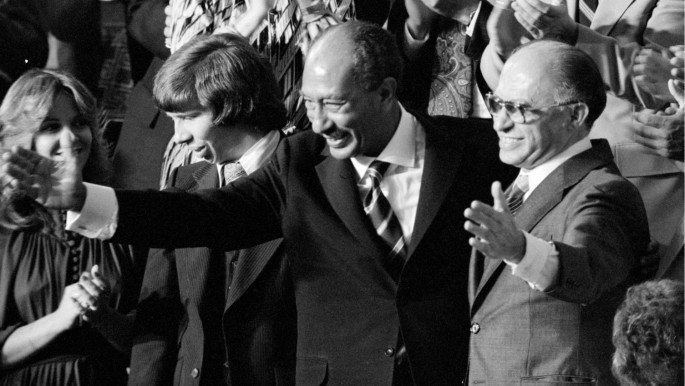 |
||
| Egyptian president Anwar Sadat and Israeli president Begin were both awarded nobel prizes after signing the accords in 1978 [Getty] |
The cables discuss a potential information campaign by Egypt on the West Bank in co-ordination with Israel to try and get the population to accept the accords. "Properly implemented we could see real benefits from this," said the US, suggesting that Egypt could purchase news outlets in the West Bank.
In the context of the accords, the cables also show early attempts at moderating the Palestine Liberation Organisation, which "unsure of Arab support... is giving priority to support for occupied lands, enhancing its image and reconciling with Jordan."
A West Bank mayor visiting Jordan was said to be specifically told by current Palestinian president Mahmoud Abbas "not to isolate moderates", and solidarity was to be maintained by all Palestinians "even supporters of King Hussein".
This foreshadows the gradual decline of what is viewed as a golden age of the Palestinian revolutionary movement in the late 70s, before the PLO became embroiled in the Lebanese civil war.
Mahmoud Abbas was the PLO's signatory for the 1993 Oslo accords, which created the Palestinian Authority that would further erode the power of the PLO.
Hafez al-Assad was vehemently against the Camp David Accords, at one point he reacted by threatening a Jordanian official, saying it was "necessary to the get the Soviets "involved".
As if Yemenis hadn't seen enough political maneuverings for one year, Assad also added that would also get "involved" in South Yemen.
From drugs and dictators, to snide remarks and ironic anecdotes...the 1978 trove of US diplomatic cables gives us just a glimse of how we arrived in the political muddle that swamps the Middle East today.
